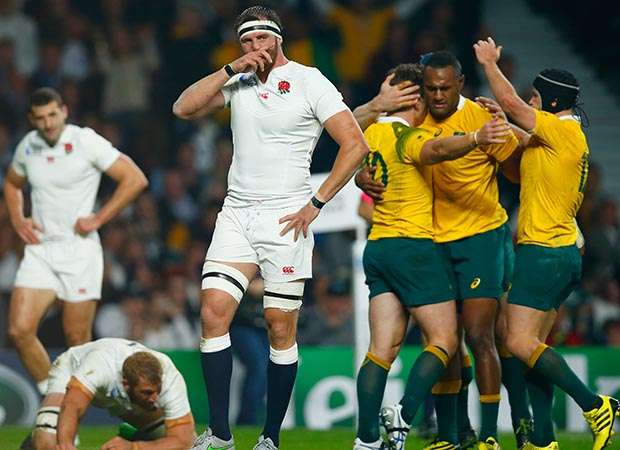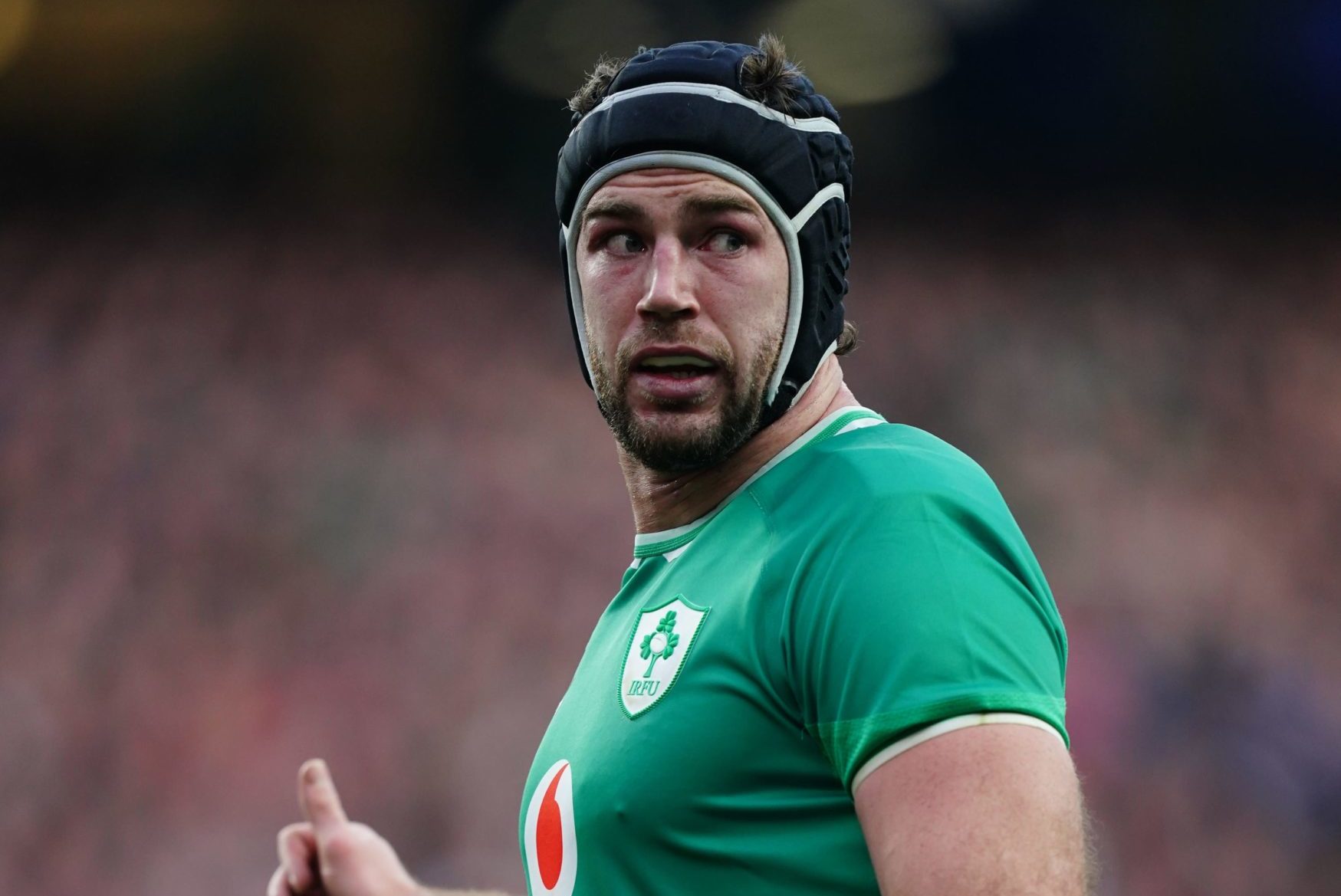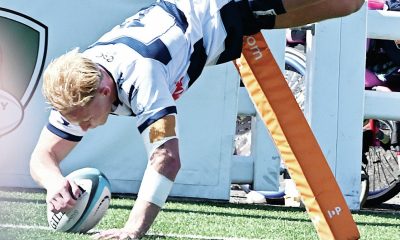
 Well that’s that, time to get out the knives and let the carnage begin, as everybody with an axe to grind bays for the blood of Stuart Lancaster.
Well that’s that, time to get out the knives and let the carnage begin, as everybody with an axe to grind bays for the blood of Stuart Lancaster.
England’s early exit from our own World Cup is, to say the least disappointing and so there must be an honest review as to what went wrong and why.
If only to make sure that this never happens again.
I am not surprised that a number of players are against taking part in the review after the leaking of the 2011 RWC review made them look like a bunch of spoilt schoolchildren, with petty jealousies dividing the squad.
As head coach, Lancaster must take a measure of responsibility and whether that will ultimately lead to his resignation or removal only time will tell. Many have said it is unfair to compare Clive Woodward’s failure in 1999 with Lancaster’s now, stating that Woodward took over little more than two years before the ’99 World Cup and without the support structure now in place, which is true.
Having said that, it is also true that the vast majority of nations never had those structures which are now commonplace, as the game had turned professional only two years before.
Every team now entering RWC have a level of unparalleled preparation, including the amateurs from the Tier Two nations, making the competition for the knock-out stages far tougher.
As the RFU‘s first ever professional coach (Roger Uttley was his unpaid manager) Woodward effectively had to use the methods that had been desployed for the previous decades to select and prepare the players taken from clubs that were trying to come to terms with the realities of professionalism.
At the time the RFU were ahead of the game, having already linked up with Loughborough College to assist with fitness. And with Fran Cotton at the head of the Club England sub-committee, Woodward had an ally and inspiration who suggested various additional specialist coaches be introduced.
While it is true Woodward had only two years to build his team going into the ’99 World Cup, he had a stable group of players that included nine who had been part of the ’95 World Cup under Jack Rowell. Unlike Woodward, Lancaster had to pick up the pieces of a fractured England squad that had torn itself apart as the leaked post-2011 review commissioned by the Rugby Players Association showed.
With around 90 per cent of players responding and promulgating serious complaints about each other as well as the management, Lancaster faced an uphill struggle just to get unity within his squad and restore the players’ trust in each other, let alone the management which is needed if teams are to succeed.
Having restored unity, there are hints on social media from players that the rapid rise of Sam Burgess caused a level of disquiet within the group, as to how someone so new to the game could walk into the World cup squad without really proving his worth. The fact that Burgess never turned out to be the ‘game
changer’ promised by the coaches, plus the criticism Burgess has since had to endure, it will be interesting to see if he chooses to stay or return to Australia and League.
Ultimately, England’s results were down to poor selection, bad specialist coaching, plus a lack of quality players in key positions. If, as Andy Farrell says, selection was unanimous, then all four coaches must take a long and hard look at themselves as it was one of (if not the biggest) reason for England’s downfall.
In the game against Wales, a hooker who cannot hook was costing penalties at the scrum before being replaced by a hooker who cannot throw as the captain elected for a lineout for the must-win play of the game. When Robshaw made that call, he would have done so thinking that England would comfortably win their lineout ball, set up the maul and drive, either to score the try or get another penalty on the 15-metre line, making it an easier kick. He was not to know that the lineout leader, Geoff Parling, would elect for a short throw to the front, increasing the chances of Wales countering the move.
Then, the selection of the back-row, Robshaw, Tom Wood and Ben Morgan, to face Australia knowing that they had picked two openside flankers making them very quick to the breakdown was an unforgivable mistake. Picking from the squad chosen, the obvious choices were Robshaw, Wood and James Haskell simply because they would have been the quickest combination.
The exclusion of Steffon Armitage has been a common call as the reason for England’s failure at the breakdowns but that is too simplistic and masks a bigger concern in the game. The idea that in England we have only one international class openside flanker, who now resides in France is, I believe, ludicrous.
We are the country with the largest number of players, 24 professional clubs and one of the world’s most successful U20 sides. They have won the Junior World Cup twice and been runners up four times over a seven-year period. If we do lack the players of the correct standard, there can be only one reason, namely, the requirements of our Premiership clubs.
The academies are run by the clubs and are tasked with delivering the next generation of professional players for the clubs who have a strict, if limited, criteria that defines which players make it.
Judging by England’s results, and the so-called lack of leaders, it seems what is needed by the club game is not good enough for the international game.


United Rugby Championship
Vaea Fifita’s commanding presence has Scarlets pushing for URC play-off spot

British and Irish Lions
British and Irish Lions Watch: Caelan Doris confirmed to miss the tour with injury

























You must be logged in to post a comment Login